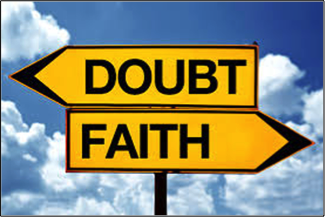 27.
27.
That’s how old John Calvin was when he published his first edition of The Institutes of the Christian Religion.
I remember when I was 27. I, like Calvin, had been a devoted follower of Jesus for about 8 years. I think I felt more bold at 27 than I do at 38. I also had far more stuff figured out. I had little room for doubt. I was far more rigid in my beliefs and my fellowship.
If you would have asked me for a definition of faith when I was 27 mine probably would have sounded a bit like this:
Nothing else than a firm conviction of mind whereby we determine with ourselves that God’s truth is so certain that it is incapable of not accomplishing what it has pledged to do by his holy Word.
That’s what Calvin said about the definition of faith. You may also note that it was mostly intellectual. Calvin would a couple years later add a statement about how it is God’s truth revealed to our minds and sealed upon our hearts.
But what I find most interesting is what Calvin adds in 1541. There is now attached to his definition of faith a discussion on doubt as well:
When we teach that faith ought to be certain and assured, we imagine neither a certainty untouched by doubt, nor a security assailed by no worry; but rather on the contrary we say that the faithful have a continual battle against their own lack of confidence.
Keep in mind that within this five year period he would become a newlywed (a glorious event but one which certainly humbles and tempers us), he would be banished from his community and pulpit (though later restored), and have a few bouts of declining health.
Calvin appears to be somewhat tempered and more reasonable in his assessment of faith. And far more helpful. I’m sharing this little tidbit today because I think far too often we live with Calvin’s 1536 definition of faith and don’t have that 1541 nuance in there. And when we struggle with doubt it floors us. And it floors us because we think that doubt is the polar opposite of faith. We’ve made doubt synonymous with unbelief, and that’s simply not true.
But it’s also not true that doubt is synonymous with faith. As I’ve said before, “we’ve assumed that because the Bible invites us to an authentic expression of doubt that being in a state of doubt is in itself an attractive virtue.” That’s most assuredly not the way the New Testament deals with the issue of doubt. It takes doubt seriously.
Though I appreciate the Calvin of 1541 and find his words to be pastorally necessary, I also believe 1536 Calvin isn’t totally wrong. Faith is a decided thing. That doesn’t mean that we don’t have doubts battling and waging war at the same time we are grabbing hold of Christ. But there is a battle there. Os Guinness is correct:
Find out how seriously a believer takes his doubts and you have the index of how seriously he takes his faith. For the Christian, doubt is not the same as unbelief, but neither is it divorced from it. Continued bout loosens the believer’s hold on the resources and privileges of faith and can be the prelude to the disasters of unbelief. So doubt is never treated as trivial. (Guinness, 31)
And that’s what I’ve had to learn. My journey has been similar to that of Calvin; where the things I’ve seen, the battles I’ve fought within myself, the heartbreaks I’ve experienced, etc. have all tempered me. I can’t give a definition of faith at this point without giving a pastoral nuance. I’ve seen too many souls ravaged and experienced bitter darkness in my own mind and heart to even hint that faith is an easy thing. But I’ve also seen the deadly poison of treating doubt as a trivial thing that doesn’t need mortified.
Chemotherapy can kill cancer and lead to greater health and endurance amongst its patients but it’s a deadly cocktail if not administered correctly and in the proper dose. It’s not a trivial thing to be played with or celebrated or glorified. So also is doubt. God can and will use it to strengthen our faith and deepen our joy in Christ. But it’s not to be celebrated or treated as normal. It’s a painful tool, practically necessary, this side of Eden.
But someday our faith will be sight.
—
Photo source: here
Is it necessary to say that I don’t agree with the picture? That should say Unbelief/Faith. Doubt is the guy standing and looking at both options.